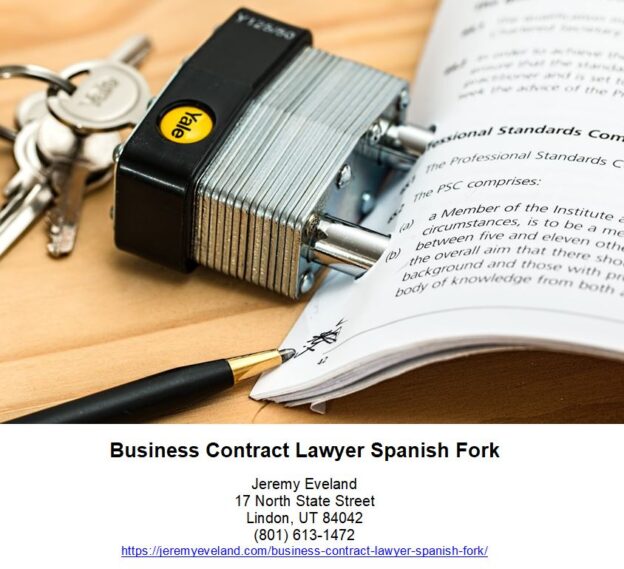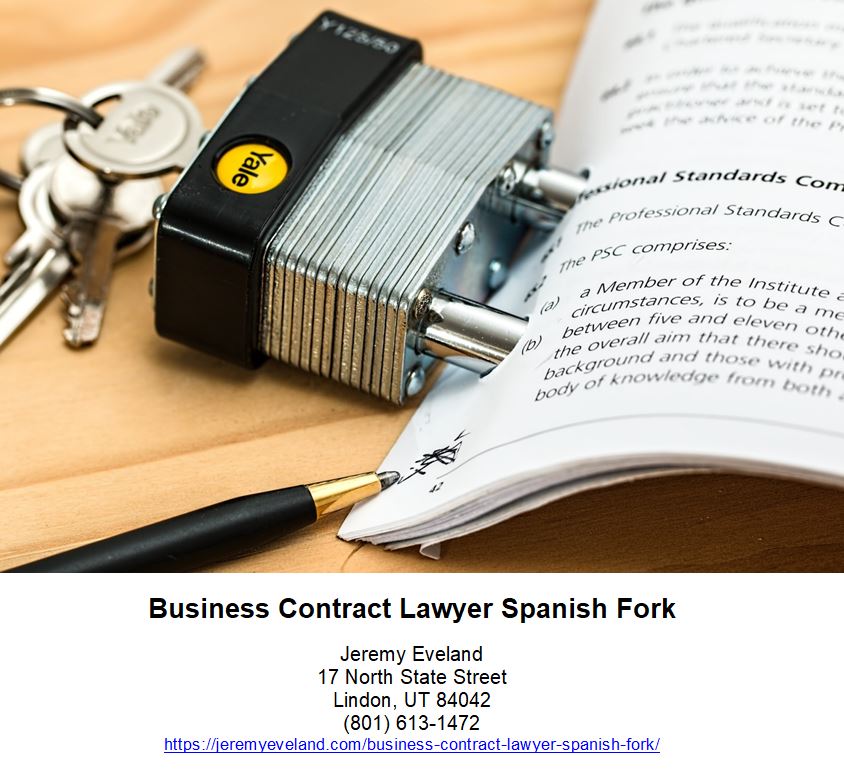Mergers and Acquisitions
Mergers and Acquisitions (M&A) are business strategies used by companies to grow their operations and increase their market share. M&A is a term used to describe the consolidation of two or more companies into one, usually involving the transfer of assets and ownership from one company to another. M&A can be done for a variety of reasons, such as expanding a company’s product line, entering new markets, or improving operational efficiency. M&A is also used to acquire assets or companies in order to increase the company’s valuation and market share.
In an M&A transaction, the acquiring company typically makes an offer to purchase the target company, which includes the purchase of the target’s assets, liabilities, and ownership. The target company can either accept the offer, or negotiate with the acquiring company. Once the offer is accepted, the companies enter into an agreement that outlines the details of the transaction, including the transfer of assets, liabilities, and ownership.
The M&A process involves several stages, including due diligence, negotiation, and transaction execution. During the due diligence stage, the companies involved analyze the financials of the target company to determine its value and viability. During the negotiation stage, the companies negotiate the terms of the deal and agree on a purchase price. Finally, the transaction is executed and the companies complete the transfer of assets and ownership.
M&A is a complex process that requires careful consideration and strategic planning. Companies considering an M&A transaction should ensure that they are prepared for the financial and legal implications of the transaction. Additionally, companies should consider the potential impact of the transaction on their current operations, employees, and customers.

Mergers and Acquisitions Attorney
You want a business lawyer to help you with Mergers and Acquisitions because the process of M&A is complex, and requires an understanding of the legal issues associated with it. For example, a successful M&A transaction requires the ability to evaluate the legal risks associated with the transaction, and ensure that the rights of both parties involved are protected. A business lawyer can provide legal advice to help you identify and manage these risks. In addition, a business lawyer can help you draft the contracts and documents associated with the M&A transaction.
It is important to ensure that the M&A transaction is legally binding and enforceable. Furthermore, a business lawyer can help you negotiate the terms of the M&A transaction, and provide advice on the best way to structure the deal. This is important to ensure that the best interests of all parties involved are taken into consideration. Finally, a business lawyer can help me to close the M&A transaction, and ensure that all legal requirements are met. This is important to ensure that the M&A transaction is completed in a timely and efficient manner. Overall, a business lawyer can provide invaluable assistance in ensuring that the M&A transaction is successful and beneficial to all parties involved.
Mergers and Acquisition Negotiations
When engaging in M&A negotiations, the parties must determine a mutually beneficial agreement that is beneficial to all stakeholders. This includes setting a fair purchase price and determining the terms of the deal. Depending on the size of the deal, the parties may need to consider legal and tax implications, as well as financial and operational issues. Other considerations may include the transfer of technology and intellectual property, and the impact of the M&A on employees and customers.
The negotiation process typically begins with an initial offer, followed by a period of negotiations and counter-offers. The parties must be willing to compromise and reach a consensus. During the process, the parties must be mindful of their respective interests and the interests of stakeholders, as well as any potential risks or liabilities that may arise. If the parties cannot agree to a deal, the process may be terminated and the parties will have to start the process anew.
Mergers and acquisitions (M&As) are negotiations between two or more companies or entities that aim to combine resources, assets, and operations. The purpose of such negotiations is to create a larger and more efficient entity, or to acquire an existing company to expand the scope of operations. M&As involve a variety of stakeholders including shareholders, directors, management, customers, suppliers, and creditors. They can be either friendly or hostile, with the latter being more challenging and rarer.
The success of the M&A negotiation process depends on the quality of the agreement reached by the parties. A successful M&A deal should be beneficial to all stakeholders, provide a clear path forward, and create long-term value for the parties involved.
Industries Heavily Involved in Mergers and Acquisitions
Mergers and acquisitions (M&A) are a common business practice in many industries. In the financial services industry, M&A is used to gain access to new products, services, and markets. Banks and other financial institutions often merge to increase their size and gain access to larger loan portfolios, higher deposits, and a more diverse customer base. Technology companies often engage in M&A to acquire new technologies, access new markets, or increase their intellectual property portfolios. For example, Microsoft has made numerous acquisitions over the years, including LinkedIn, Skype, and GitHub.
In the consumer goods industry, M&A is used to gain access to new brands, products, or distribution channels. For example, a food company may acquire a rival brand to gain access to a new customer base or a distribution network. In the retail industry, M&A is used to increase market share, gain access to new technologies, and expand into new markets. For example, Amazon has made numerous acquisitions, including Whole Foods and Zappos, in order to expand its product offerings and increase its customer base.
The healthcare industry is also a major source of M&A activity. Companies often acquire competitors to gain access to new technologies, expand their product portfolios, and increase their customer base. Pharmaceutical companies often acquire other companies to gain access to new products or technologies. In addition, hospitals and other healthcare providers often merge in order to gain access to larger patient populations and more resources.
Finally, the energy industry is a major source of M&A activity. Companies often acquire competitors to gain access to new technologies, expand their product portfolios, and increase their market share. For example, oil and gas companies often acquire other companies to gain access to new sources of oil and gas. In addition, utilities often merge in order to gain access to larger customer bases and increase their efficiency.
Definition of Mergers and Acquisitions
Mergers and Acquisitions uses several areas of law including contract law, business law, succession law, intellectual property law and others. Mergers and acquisitions (M&A) is defined as the combination of two or more companies, either through a purchase of one company by another or a consolidation of the two companies. In the case of a purchase, one company (the acquirer) will purchase the assets, liabilities and equity of another company (the target). In the case of a consolidation, the two companies will combine their assets, liabilities, and equity into a single entity.
M&A is a complex process that involves a variety of legal, financial, and strategic considerations. On the legal front, M&A transactions must be structured in a manner that complies with applicable laws and regulations. Companies may also need to consider the financial implications of a potential transaction, such as the cost of financing the purchase or the tax implications of the transaction. From a strategic perspective, companies should consider the potential synergies that can be achieved through combining two companies, such as the ability to increase market share, reduce costs, gain access to new technologies, or achieve economies of scale.
The goal of M&A is to create value for the acquiring company by improving its competitive position or increasing its revenue or profits. The value created may come in the form of increased efficiency, greater market share, new products or services, or access to new markets or resources. Ultimately, a successful M&A transaction is one that creates long-term value for the acquiring company.
Types of Mergers and Acquisitions
M&A can take the form of a merger, acquisition, joint venture, or combination of these methods. A merger is when two companies combine and form a single new entity. An acquisition is when one company purchases another company, and the acquired company’s assets and liabilities become part of the acquiring company. A joint venture is when two companies form a new entity, where both companies share ownership.
The primary goal of M&A is to increase the value of the shareholder’s investments. Companies may pursue M&A strategies for a variety of reasons, such as increasing their market share, expanding into new markets, diversifying their product offerings, or achieving cost savings through sharing resources. M&A can also be used to eliminate competitors and gain access to new technology or expertise.
There are several types of M&A, including horizontal merger, vertical merger, conglomerate merger, and leveraged buyouts. In a horizontal merger, two companies in the same industry combine to form a larger company. A vertical merger occurs when two companies in different but related industries combine. A conglomerate merger involves the acquisition of multiple companies in unrelated industries. Finally, a leveraged buyout is the purchase of a company using borrowed money, with the intention to pay the debt off using the company’s future profits.
M&A can bring numerous benefits, such as increased market share, economies of scale, synergy, and diversification. However, M&A can also be risky, since the combination of two companies has the potential to create a variety of problems, such as cultural clashes, operational inefficiencies, and financial problems. Therefore, it is important to thoroughly research and analyze any potential M&A opportunities before proceeding.
Horizontal Mergers
A horizontal merger is a type of mergers and acquisitions (M&A) transaction in which two companies in the same industry merge together. This is in contrast to a vertical merger, where two companies in different stages of production or distribution merge together. Horizontal mergers are typically viewed as more difficult to complete than vertical mergers, as they often create competitive issues.
Horizontal mergers can have a number of different objectives, such as reducing costs, increasing market share, or even entering a new geographic market. The primary benefit of a horizontal merger is that the two companies can combine their resources, allowing them to achieve efficiencies of scale and reduce costs. This could be an attractive option for companies in highly competitive industries, as it would allow them to remain competitive and increase their market share.
In addition to the potential cost savings, another common objective of horizontal mergers is to gain access to new technology and skills. By combining with a company in the same industry, a company can gain access to new technology, processes, and personnel that can help them become more competitive. For example, a company in the automotive industry may merge with a company that specializes in electric vehicles in order to gain access to the technology and know-how necessary to produce them.
Horizontal mergers can also lead to increased competition in an industry, as the larger company that is created may be able to increase its market share and drive competitors out of the market. This can lead to higher prices for consumers, so regulators often scrutinize these types of mergers very closely to ensure that they don’t lead to anti-competitive outcomes.
Overall, horizontal mergers can be an attractive option for companies in the same industry, as they can lead to cost savings, access to new technology and personnel, and increased market share. However, they must also be carefully evaluated to ensure that they don’t lead to anti-competitive outcomes.
Vertical Mergers
A vertical merger is a type of merger or acquisition that occurs between two companies operating at different stages of the same production process or supply chain. For example, a merger between a supplier and a customer, or between a manufacturer and a retailer. The primary rationale for a vertical merger is that it can allow the two companies to realize cost savings and efficiencies by cutting out the middleman, as well as streamlining the production process and improving distribution capabilities. Additionally, vertical mergers can result in increased power in negotiating prices with suppliers and customers, as well as increased control over the supply chain.
The antitrust authorities of the United States view vertical mergers more favorably than horizontal mergers, as vertical mergers do not reduce competition in the same way. The antitrust authorities will still review a vertical merger to ensure that it does not pose any risk of reducing competition, such as by creating a monopoly or creating barriers to entry for new competitors.
Vertical mergers can be complex and have a variety of legal ramifications. It is important for companies considering a vertical merger to consult with legal and financial advisors to ensure that the merger will be beneficial and will not run afoul of any antitrust regulations. The process of a vertical merger also involves due diligence, negotiation, and the completion of legal documents. Once the merger is completed, the two companies must integrate their operations and resources to realize the expected cost savings and efficiencies.
Conglomerate Mergers
A conglomerate merger is a type of merger and acquisition that combines two or more companies from different industries into one entity. A conglomerate merger is often used as a way to enter into new markets, diversify a company’s portfolio, or expand its reach. Conglomerate mergers are usually motivated by a company’s desire to build a competitive advantage and gain synergy through combining operations and resources. The parent company in a conglomerate merger typically seeks to leverage the strengths of each acquired company in order to create a competitive advantage and increase its profits.
When a conglomerate merger is successful, it can generate significant cost savings and improved efficiency. This is because the parent company can take advantage of economies of scale and reduce costs through the integration of different production processes. Additionally, the parent company can benefit from the acquired company’s expertise and existing customer base, allowing it to quickly gain market share and increase revenues.
However, conglomerate mergers can be complex and difficult to manage. This is because the parent company has to integrate the operations and resources of two or more companies from different industries, which is no small feat. Additionally, the parent company must be able to identify and capitalize on the synergies between the two companies, and create a culture of collaboration and integration.
Overall, conglomerate mergers are a way for companies to gain access to new markets, diversify their portfolios, and expand their reach. They can provide significant cost savings and improved efficiency, but the parent company must be prepared to manage the complexities and risks associated with the merger.
Consolidation Mergers
Consolidation mergers are an important part of mergers and acquisitions that involve combining multiple companies into one. This type of merger is used to increase the size and scope of the business and to create economies of scale that can help it become more competitive in the marketplace. The larger company is usually the one that initiates the merger, and it typically purchases the smaller companies in order to gain access to their assets and operations. The larger company may also take on the liabilities of the smaller companies, which can help reduce the costs associated with the merger.
In a consolidation merger, the larger company may absorb the smaller ones, or it may merge its operations with those of the other companies. In the latter case, the merged company will keep its existing management and leadership, and the two separate companies will combine their assets, liabilities, and operations. This type of merger may also involve restructuring the business, such as downsizing or changing the way the company is organized. In addition, the larger company may also acquire the rights to any intellectual property owned by the smaller companies.
Consolidation mergers can be beneficial for both the larger and smaller companies involved. For the larger company, it can help it become more competitive in the marketplace by combining the assets of multiple companies and creating economies of scale. The smaller companies may also benefit, as they can gain access to the larger company’s resources and financial strength. However, there are also risks associated with consolidation mergers, such as the potential for losing control of the merged company and the potential for the larger company to dominate the smaller ones.
Asset Acquisition
Asset acquisition is a form of mergers and acquisitions (M&A) that involves the purchase of one company’s assets by another. This is different from a stock acquisition, where the acquiring company purchases the target company’s shares of stock. In an asset acquisition, the purchaser obtains all of the target company’s assets but none of its liabilities. It is not necessary for the target company to be a legal entity; it can also be an individual.
Asset acquisition is typically used when a company wants to acquire specific assets, such as intellectual property, physical assets, or certain contracts. It is also often used when a company wants to avoid certain liabilities that may be associated with the target company. It is also common in situations where the target company has valuable assets that may not be easily transferred to the acquiring company, such as real estate.
Asset acquisition is a complex process that requires careful consideration of various legal and financial issues. The process typically involves negotiating an asset purchase agreement between the parties, which outlines the terms of the transaction. Additionally, the buyer must determine the fair market value of the assets and liabilities in order to properly allocate the purchase price. Other considerations include tax implications, corporate governance, and regulatory considerations.
Overall, asset acquisition is a complex process that requires careful consideration of various legal and financial issues. It can be a beneficial way for companies to acquire specific assets, while avoiding certain liabilities associated with the target company. However, it is important to understand the risks and rewards associated with asset acquisition before entering into any such transaction.
Stock Acquisition
Stock acquisition is one of the key processes involved in mergers and acquisitions (M&A) activity. In its simplest form, a stock acquisition is the purchase of a majority stake in another firm’s stock by an existing firm. This occurs when the acquiring firm purchases a controlling interest in the target firm, usually by paying a premium to the current shareholders of the target company. The acquiring company then has the ability to influence the target company’s operations, management, and strategy.
Often, the acquiring company will pay a premium in order to acquire the target company’s shares as a way to gain control. This premium is usually determined by the market value of the target firm and can include a variety of factors such as the target firm’s performance, competitive landscape, and industry trends. The acquiring company may also seek to gain synergies from the acquisition by combining the target company’s assets and operations with those of the acquiring company.
Stock acquisition is an important part of the M&A process, as it allows the acquiring company to gain control of a target firm and potentially increase its value and profits. However, stock acquisition is also a complex and difficult process that requires careful consideration and analysis to ensure a successful outcome. The acquiring company must consider all of the potential risks involved in the transaction and analyze the target firm to determine if the acquisition will be beneficial and profitable. Proper research and due diligence are paramount when considering a stock acquisition and should be conducted prior to any agreements being finalized.
Divestiture
Divestiture is a type of merger and acquisition strategy that involves the sale of a company’s business unit, division, or subsidiary. It is a strategic decision to divest or sell off part of the company in order to focus on core operations and to raise capital for other investments. It is usually motivated by a company’s need to focus on its core operations, reduce costs, or raise capital.
Divestiture can take the form of a spin-off, joint venture, or divestment. Spin-offs involve the creation of a new company from a division or subsidiary of the existing company. A joint venture is a form of business partnership between two or more parties, in which the partners agree to combine resources and share the profits. With divestment, the company sells the division or subsidiary to another company.
The process of divestiture can be complex and can involve many legal and financial considerations. Companies must evaluate the potential tax implications, the impact on employee morale, and the potential for increased competition. Companies must also consider the potential effects on their brand and reputation, and how the divestiture may affect their strategic objectives.
In some cases, divestiture can be beneficial for a company, providing it with the opportunity to focus on its core business and free up resources to pursue new opportunities. It can also be beneficial for shareholders, as the divestiture may result in higher returns on their investments. However, divestiture can also result in layoffs, decreased employee morale, and market disruption. You should consider having a business attorney assist you if you are seeking to do a divestiture strategy. A divestiture is a merger and acquisition strategy that can be beneficial for companies in certain situations. It is important for companies to be aware of the potential effects of divestiture, and to carefully consider the potential risks and rewards before making a decision.
Why Do A Merger or an Acquisition?
There are many reasons you would consider doing either a merger or an acquisition. We will address several reasons in turn.
Economies of Scale
Economies of scale are a key reason why companies choose to merge and acquire other businesses. Economies of scale refer to the cost savings achieved when a company increases its production or output. When a company merges or acquires another business, it is able to increase its production and output, allowing it to take advantage of the cost savings. By producing more with the same amount of resources, the company can reduce costs associated with producing additional products. Additionally, the company can benefit from shared resources and services, achieving even greater cost savings.
For example, a company that acquires another business may be able to combine their production processes, allowing them to produce more with fewer resources. This can reduce the need to buy new equipment or hire additional employees, resulting in cost savings. Furthermore, the merged company may be able to take advantage of the economies of scale associated with the new business’s existing production facilities, allowing them to produce more with fewer resources.
In addition to cost savings, economies of scale can also result in greater competitive advantages. By combining production processes, the company can produce more efficiently and effectively, allowing them to stay ahead of the competition. Furthermore, by merging with other businesses, the company can access a larger customer base, resulting in greater sales and profits.
Overall, economies of scale are a key reason why companies choose to merge and acquire other businesses. By combining production processes and resources, the company can reduce costs, increase efficiency, and gain competitive advantages. Additionally, the company can access a larger customer base, leading to increased sales and profits.
Gaining Market Share
Gaining market share is a key motivator for many mergers and acquisitions. Through a merger or acquisition, two companies can combine their resources, capabilities, and customer bases to create a larger, stronger entity. This larger company may have competitive advantages that allow it to take market share from its competitors. For example, a merged company may have increased economies of scale, which can result in lower costs, greater efficiency, and higher profits. Additionally, a merged company may have greater access to capital and new technological capabilities, both of which can help it to gain market share.
In addition to gaining market share, a merged company may also benefit from synergy. Synergy refers to the combined effect of two entities working together, which is often greater than the sum of their parts. For example, a merged company may have access to new markets, technologies, or customer bases that would not have been available to them as separate entities. This increased access can create new opportunities for growth and market expansion.
Finally, a merged company may also be able to gain market share by eliminating competition. By merging with a competitor, a company can eliminate potential rivals and thereby increase its own market share. Additionally, the merged company may be able to capitalize on the resources and capabilities of the other company, further increasing its competitive advantage.
Overall, gaining market share is a key motivator for many mergers and acquisitions, as it can give the combined company access to new markets, technologies, and customers. Additionally, the merged company may benefit from increased economies of scale and synergy, as well as the elimination of competition. Thus, the strategic pursuit of market share can often be an important factor in deciding whether to pursue a merger or acquisition.
Mergers and Acquisitions Lawyer Consultation
Are you doing Mergers and Acquisitions? If so, you should consider hiring Jeremy Eveland as either your business consultant or attorney. He has extensive experience in this field and would be a great asset to the team. Jeremy is a skilled negotiator, capable of finding creative solutions to complex situations and transactions. He has an understanding of the legal frameworks that govern M&A transactions, as well as a keen eye for financial analysis and market trends. He is also well-versed in the different types of M&A transactions and knows how to structure deals for maximum benefit for all parties involved. Jeremy is a team player and a good communicator. He is able to explain complex topics in an easy to understand manner and is always willing to listen to the opinions and perspectives of his colleagues. He is also an enthusiastic and passionate leader, inspiring others to work together to achieve their collective goals. Given his experience, track record, and strong interpersonal and communication skills, you should consider his help when doing Mergers and Acquisitions. He will be a valuable asset to the team and will help to ensure that all financial transactions are completed successfully.
M&A Attorney Consultation
When you need legal help with Mergers and Acquisitions, call Jeremy D. Eveland, MBA, JD (801) 613-1472 for a consultation.
Jeremy Eveland
17 North State Street
Lindon UT 84042
(801) 613-1472
Home
Recent Posts
Business Lawyer
The Utah Uniform Partnership Act
The 10 Essential Elements of Business Succession Planning
Utah Business Law
Mergers and Acquisitions
Advertising Law
Business Succession Lawyer Salt Lake City Utah
Business Succession Lawyer West Jordan Utah
Business Succession Lawyer St. George Utah
Business Succession Lawyer West Valley City Utah
Business Succession Lawyer Provo Utah
Business Succession Lawyer Sandy Utah
Business Succession Lawyer Orem Utah
Business Succession Lawyer Ogden Utah
Business Succession Lawyer Layton Utah
Business Succession Lawyer South Jordan Utah
Business Succession Lawyer Lehi Utah
Business Succession Lawyer Millcreek Utah
Business Transaction Lawyer
Construction Law
Business Lawyer Salt Lake City Utah
What Is An Express Contract?
Antitrust Law
Business Transaction Lawyer Salt Lake City Utah



















